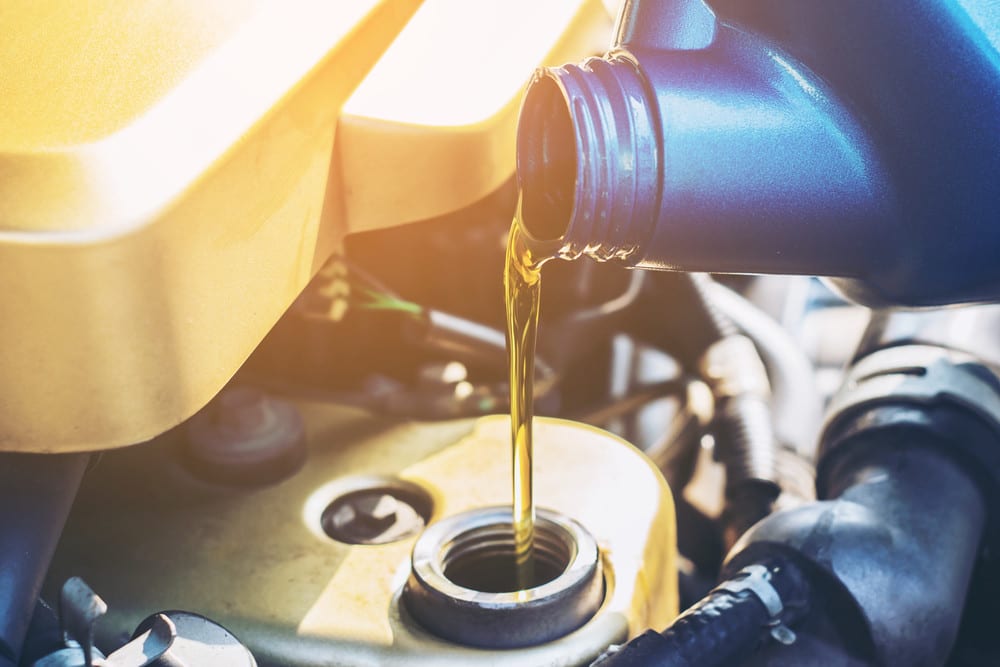Imagine yourself on the highway with your family, enjoying the freedom and joy of the open roads. The thermometer on the dashboard begins getting closer to the red zone and panic begins to set in. You pull over, unzip the hood and think, “Can a car overheat with low oil?” In this article, we’ll explore this issue and examine the connection between low levels of oil as well as engine heat.
Introduction
A functioning car engine depends on the functioning of various parts and a key component in the formula is the oil. Oil not only lubricates the moving parts of the engine and also plays an important role to keep it cool. But, if your car is in a state of low oil, it could cause negative consequences such as overheating.
Understanding the Role of Oil in a Car’s Engine
Before we get into the relationship between overheating and low oil it is important to appreciate the crucial role that oil plays in a car’s engine. Oil is an oil lubricant that ensures the components of the engine move in a smooth manner without creating excessive friction. In addition, it functions as a coolant by dispersing heat generated through internal combustion.
In order to ensure that your engine is performing at its best It is essential to maintain an adequate level of oil. In the absence of sufficient oil, the engine’s components could grind against one another which can lead to increased friction and higher temperatures.
Effects of Low Oil on Engine Performance
When a car is depleted in oil, it’s as if operating a machine that is well-oiled but without adequate lubrication. Insufficient oil results in an increase in friction between the moving parts of the engine and results in a lot of production of heat. This means that the engine’s temperature increases quickly and can cause overheating.
Furthermore, oil not only provides lubrication to the engine but assists in absorbing and dispersing heat from the critical parts. If the level of oil drops, cooling capability reduces, making it difficult to keep the engine at an operating temperature that is optimal.
Symptoms of Low Oil and Overheating
To stay clear of the harmful adverse effects of low oil or overheating, it’s important to be aware of the warning indications. Be on the lookout for the oil pressure light flashing on your dashboard, which indicates low pressure in the oil. Unusual engine noises like tapping or knocking sounds can also be an indication of a problem.
indicator of insufficient the amount of lubrication caused by low oil. A rising temperature gauge, which signals an increase in the temperature of your engine is a further signal that shouldn’t be overlooked. These signs are crucial indications that your car could be in danger of overheating because of the low oil levels.
Can Low Oil Cause a Car to Overheat?
The answer is yes. Insufficient oil levels could cause an automobile to overheat. The relationship between oil levels and engine temperature is interconnected. If oil levels are too low for the engine, it does not have adequate lubrication, which leads to an increase in friction and heat accumulation. In addition, when oil levels are low the engine’s cooling capability is diminished, making it more difficult for the engine to release heat effectively.
The oil circulated inside the engine aids in removing heat from vital components, making sure they function within an acceptable temperature range. In the absence of sufficient fuel, an engine can become vulnerable to overheating. This could have serious consequences for the performance of the engine and its longevity.
Preventive Measures and Maintenance Tips
To prevent the dreadful scenario of a vehicle overheating because of low oil, it is essential to take preventive measures and follow the proper maintenance guidelines. Here are some suggestions to ensure you have the right oil levels and avoid overheating:
- Regular oil checks It is a good idea to test your car’s oil levels regularly. Check the owner’s manual for your car to learn the proper procedure to check the level of oil, and make sure it’s within the range recommended by the manufacturer.
- Timingly oil changes Follow the manufacturer’s recommendations regarding oil change intervals. Making sure you change the oil regularly and using the recommended type of oil and viscosity for your car can aid in preventing issues caused by low levels of oil.
- Take action immediately if you spot oil-colored stains underneath your vehicle or notice an oily smell that persists this could be a sign of the presence of a leak. Repair any leaks as soon as you notice them to avoid a decrease in the level of oil and a possible engine overheating.
- Watch for Warning Signs to Monitor Be aware of warning signs, such as the indicator for pressure in the oil or unusual engine sounds, or an increase in temperature gauge. If you notice any of these warning signs immediately, you must determine the cause and fix it.
Other Factors Contributing to Car Overheating
Although low oil levels can cause overheating in cars, however, it’s important to recognize that there are other elements that could also contribute to the problem. They include:
- Issues with Coolant and Radiator Problems with the radiator: A damaged or malfunctioning one or a lack of coolant levels may make it difficult for the engine in regulating temperature. Check regularly the coolant and radiator levels to make sure they’re in good shape.
- An inefficient thermostat or Water Pump: The thermostat regulates the engine’s temperature by managing the flow and distribution of coolant. A defective thermostat can cause temperatures to fluctuate and even overheat. In the same way, a malfunctioning or damaged water pump could hinder the circulation of coolant, leading to the engine overheating.
It’s crucial to address these issues quickly, as they can increase the dangers of overheating, and may cause serious damage to the engine of your car.
Steps to Take When a Car Overheats
Even with all the best efforts, there are occasions when your vehicle does overheat. In these situations, it is crucial to act quickly to avoid further damage. Below are some steps you should take when your car is overheated:
- Securely Pull Over: Locate a secure spot to pull over away from the traffic. Switch off the engine and let cooling take place.
- Then open the Hood When the engine has cool then open the hood with care so that heat can evaporate faster.
- Verify Coolant Levels: If legal to do so verify the coolant level inside the radiator. If it’s low, you can add cooling fluid slowly in order to avoid abrupt changes in pressure.
- Contact us for assistance If you’re unable to find the reason for your overheating or if your issue persists, you should contact a professional for assistance. A certified mechanic will assess the situation, pinpoint the root cause of overheating and then make the needed repairs.
Don’t try to remove the cap of your radiator or even touch any component while the engine is heating up, since it could result in severe burns or injuries.
Consequences of Overheating Due to Low Oil
The risk of letting your vehicle overheat because of low levels of oil could result in serious damage. The engine is operating under specific conditions, and extreme heat can result in severe damage to its parts. Here are some possible consequences of excessive heat:
- The engine’s damage could result in cracking or warping of engine parts like the engine block, cylinder head, and pistons. The damage can be expensive to repair and could necessitate replacement of the affected components.
- Reduced Performance: A hot engine may not perform at its peak performance. This can lead to reduced performance, a decrease in the efficiency of the engine, and diminished performance.
- Higher Repair Costs: Fixing an engine that has been damaged due to overheating is a costly task. In some instances, it could even call for the replacement of the engine, which could be a major cost.
- Safety Risks: A hot engine could cause you to be in a bind in the roadway, increasing your likelihood of accidents as well as other dangers. It is essential to deal with the issue immediately to ensure your safety as well as the safety of other drivers on the roadway.
Conclusion
Maintaining the right levels of oil within your car is vital for proper operation and to avoid overheating. In fact, low levels of oil can cause your car to overheat since oil plays a crucial part in lubrication and cooling. By checking the oil levels regularly and addressing leaks and ensuring that you follow the correct maintenance procedures to reduce the chance of overheating and damage.
Keep in mind that prevention is essential. Be alert to warning signs like the indicator for oil pressure and unusual sounds or the increasing temperature gauges. If your vehicle does get overheated take the appropriate steps to protect yourself and seek assistance from a professional when necessary.
If you take proactive steps to ensure proper oil levels and address any issues promptly to ensure that your vehicle runs efficiently and enjoys a stress-free trip on the roads.
For more information – Quora
FAQs (Frequently Asked Questions)
- Can I use any type of oil in my car? It’s important to use the oil recommended by your vehicle’s manufacturer. Consult your owner’s manual or seek professional advice to determine the appropriate oil type and viscosity for your car.
- How often should I check my car’s oil level? It’s a good practice to check your car’s oil level at least once a month or before long trips. Regular oil checks can help identify any potential issues early on.
- What should I do if I notice an oil leak? If you notice an oil leak, it’s essential to address it promptly. Consult a mechanic to identify the source of the leak and perform the necessary repairs to prevent oil loss and potential engine damage.
- Can engine overheating be caused by factors other than low oil? Yes, engine overheating can be caused by various factors, including radiator problems, coolant issues, faulty thermostats, or water pump malfunctions. Regular maintenance and prompt troubleshooting can help prevent overheating.
- What are the long-term effects of engine overheating? Long-term effects of engine overheating can include engine damage, decreased performance, increased repair costs, and potential safety risks. It’s crucial to address overheating issues promptly to minimize these consequences.
G35 Coupe Drift Car: Unleashing the Power and Thrill

